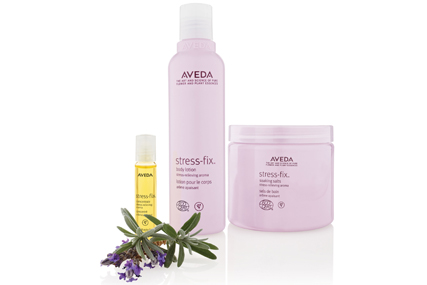
Haircare brand Aveda's roots lie in using natural, environmentally friendly ingredients in its products. It was founded by hairdresser and salon-owner Horst Rechelbacher in 1978, following a trip he made to India, during which he learned about the organic ingredients used in traditional Ayurvedic therapies.
Inspired by nature and concerned about the effects of synthetic products on people, Rechelbacher began creating his own shampoos using ingredients such as cloves, chamomile and blue malva herbs, and launched Aveda as a complete organic haircare line. In the early 80s, he began distributing the haircare range throughout Minnesota in the US, where his salons were located.
The Aveda stable has subsequently been extended, with the addition of styling products, skin care and make-up lines, and expanded globally - first to Canada, and then to Singapore, Australia and Europe. By 1988, product sales were estimated to have passed $1m. Rechelbacher also founded the Aveda Institute, setting up a chain of Aveda salons for distributing the range and sharing the brand's ethos with other hair and beauty practitioners.
Aveda's presence in salons rather than supermarkets or pharmacies placed the brand in front of more upmarket buyers. This professional image lessened the possibility of it being viewed as simply a 'hippy' product.
In 1989, it became one of the first companies to sign up to CERES (Coalition for Environmentally Responsible Economies), a 10-point code of corporate environmental conduct. Rechelbacher's opposition to animal testing and commitment to using recycled packaging helped Aveda to stand out.
In 1997, Aveda was bought by beauty giant Estee Lauder in a deal worth $300m (£186m). Rechelbacher remained on the board until 2003, and under fresh leadership, the brand has continued its progress in using natural ingredients, sustainable business practices and environmentally sound packaging.
The company generates the power for its Minnesota production site from wind farms and its bottle caps are made entirely from recycled plastic. Aveda also forms partnerships with communities worldwide to source natural ingredients.
The global reach of Estee Lauder has boosted international distribution and sales. Aveda products are now sold worldwide in about 7000 professional hair salons and spas in more than 30 countries.
BRAND LESSON
By James Joyce, client director, JKR
Aveda is a brand born from more spiritual roots than most of the Champions featured before on this page. It was inspired by the Ayurvedic philosophy and the principle that the universe is connected.
It subscribes to the belief that we remain healthy if we retain balance.
Our lifestyles - choices about diet, exercise, profession and relationships - can all create physical, emotional or spiritual imbalances. Ayurvedic medicine seeks to naturally restore our individual balance.
Aveda's calm, clean and simple graphic language reflects this philosophy. The brand's name is explicitly derivative and is Sanskrit for 'all knowledge'. However, the cleverest thing about Aveda's design is the fine balance it manages to strike.
As a colleague said, the 'natural products normally feel a bit eco-warrior and aren't really that good - Aveda has hit the sweet spot'. Natural brands have all too often overlooked the importance of looking good in the bathroom.
The price tag certainly plays its part, too. Aveda follows the 'reassuringly expensive' model and signals that you won't have to compromise on quality or effectiveness for your beliefs.
Aveda teaches us the importance of being both real and realistic. The philosophy that inspired the brand still guides it - from partnerships with tribes to product sustainability certifications. Yet, it has not been naive enough to think that people will sacrifice performance and image for principles.
TIMELINE
1970: Horst Rechelbacher was introduced to Ayurvedic doctors, Vinod and Kusum Upadhyay, during his first trip to India. They instructed him in the arts of aromatherapy and pharmacology.
1978: The Aveda Corporation was founded, selling plant-based hair and skin products.
1993: Aveda formed its first indigenous partnership, with the Yawanawa tribe in the Brazilian rainforest, sourcing uruku, a red dye used in Aveda makeup.
1997: Aveda was bought by Estee Lauder, with Rechelbacher remaining a consultant until 2003.
1999: Aveda began the Earth Month initiative, supporting environmental projects around the world.
2012: Aveda launched its global 'Walk for Water' campaign as part of Earth Month.

